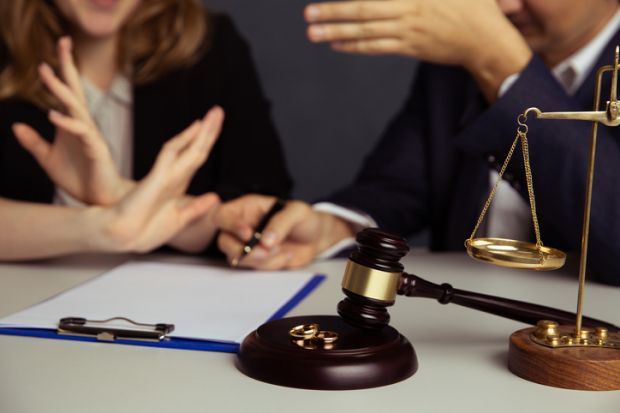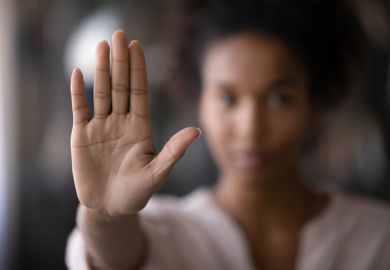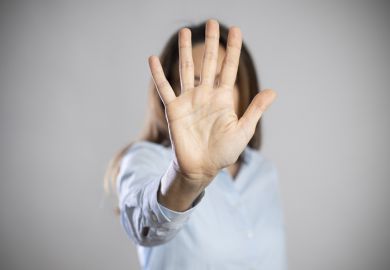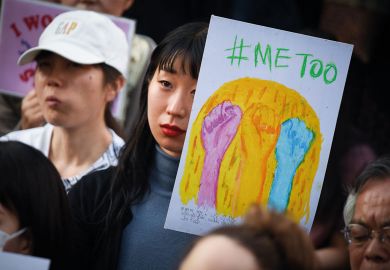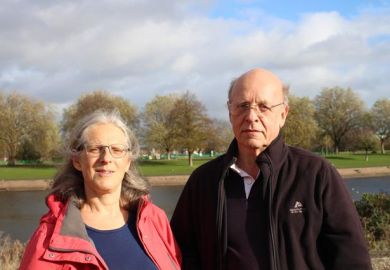The rise in the number of sexual misconduct allegations in universities and colleges is concerning. However, it does not necessarily mean a rise in the number of incidents. It might even be a welcome statistic, showing that victims feel they will be listened to and their complaints dealt with.
But do universities react correctly? Some training and guidance suggests that students who file sexual misconduct allegations need to feel believed from day one. But universities have duties to reported (accused) students, too: we should not assume that someone is guilty just because the allegation is sexual in nature. The reported student must get a fair hearing.
If an education provider fails in its duties then, aside from human costs, it could be exposed to claims worth millions of pounds from, for example, a student who is unable to practise medicine and therefore suffers a major loss of earnings and pension for the rest of their life.
Of course, any failure to safeguard the interests of the reporting student or other potential victims could also have huge financial and human costs. So how do we achieve balance?
The first step should be to assign appropriate staff members to look after the welfare of each student – one each. These people are not there to investigate or to judge.
Next up, an investigator must be appointed. This will be someone without prior knowledge of either party. Ideally, it will be someone external to the organisation. A specially trained HR practitioner – someone with experience of people and addressing human behaviour – is ideal.
The role is often misunderstood, particularly by investigators who are untrained. They are not prosecutors, gathering evidence to prove guilt. Nor are they judges, there to conclude guilt or innocence: this is premature and disadvantages the reported student when it comes to a fair hearing.
What the investigator must do is look at all possible explanations for the allegations made. This is not easy. It involves asking difficult questions. It might involve seeking out evidence that a student is mistaken or their recollection is impaired in some way, or even that the allegations are fabricated. This questioning must be addressed delicately, and at the right time.
The investigator must ensure that their empathy does not hamper a fair investigation. On one occasion, I was reviewing a client’s draft report and asked why the investigator had not referred to the possibility that the allegation was untrue. The investigator replied: “I met with the student and know she’s telling the truth.” They had stumbled into supporting one party against another and had excluded evidence that they had decided they didn’t believe. Fortunately, we were able to resolve the issue and ensure a fair hearing.
Once investigations are complete, the investigator must make recommendations – in particular, whether there is sufficient evidence to justify a hearing. They should not say who or what they believe: that is something for the decision-making panel after a hearing.
The reported student might appoint a lawyer. This has caused alarm in some quarters, with people saying that this is unfair to the reporting student. However, if you were accused, would you not want to be represented? And why would a university or college be reluctant to hear professional representations? It does not need to become adversarial – it is simply a case of listening. A lawyer can ask the panel to look at pertinent angles and highlight points that might be unfair to their client – things that a panel should be looking at anyway.
Alarm over lawyers potentially obfuscating and complicating hearings does a disservice to panels. In my experience, when I have been advising panels, they have been able to look beyond “lawyer-speak”. They are not hoodwinked.
Any concerns about a lawyer potentially mis-steering a panel can be addressed by the panel having its own lawyer, in an advisory capacity, to help it put arguments into perspective. A lawyer experienced in disputes over conduct can be very helpful, which is why organisations often use employment lawyers.
In this way, the panel can ensure that all positions have been considered regardless of who else (if anyone) has appointed a lawyer. Organisations needn’t instruct lawyers in every misconduct case, but it is surely merited in allegations of sexual misconduct. It is certainly better than denying the reported student the opportunity to be represented.
Andrew Brown is a partner at Anderson Strathern, a specialist in employment law.
Register to continue
Why register?
- Registration is free and only takes a moment
- Once registered, you can read 3 articles a month
- Sign up for our newsletter
Subscribe
Or subscribe for unlimited access to:
- Unlimited access to news, views, insights & reviews
- Digital editions
- Digital access to THE’s university and college rankings analysis
Already registered or a current subscriber?
